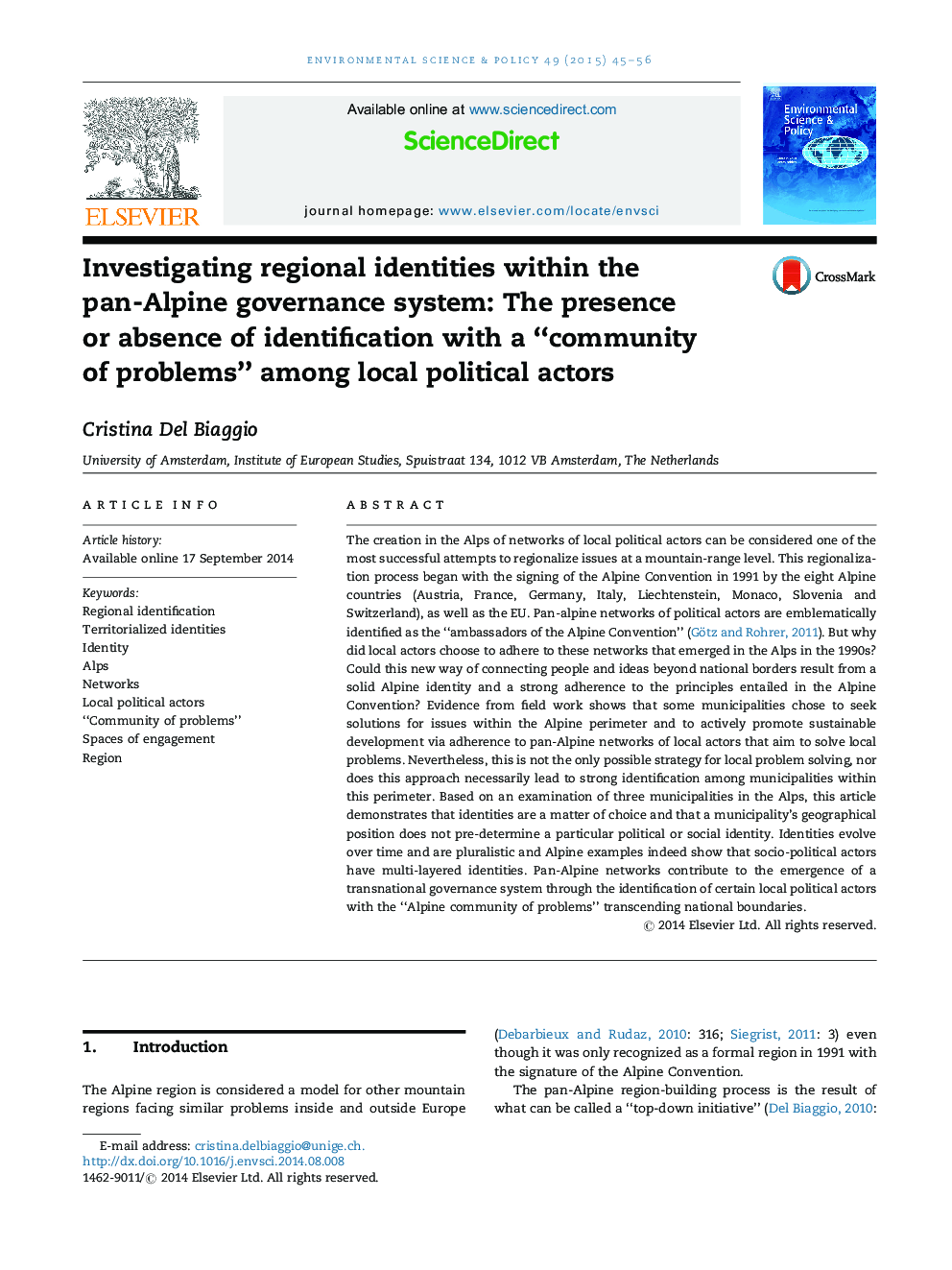| کد مقاله | کد نشریه | سال انتشار | مقاله انگلیسی | نسخه تمام متن |
|---|---|---|---|---|
| 1053518 | 1485057 | 2015 | 12 صفحه PDF | دانلود رایگان |
عنوان انگلیسی مقاله ISI
Investigating regional identities within the pan-Alpine governance system: The presence or absence of identification with a “community of problems” among local political actors
ترجمه فارسی عنوان
بررسی هویت های منطقه ای در سیستم حکومتی آلپاین: وجود یا عدم شناسایی با یک جامعه از مشکلات؟ در میان بازیگران سیاسی محلی
دانلود مقاله + سفارش ترجمه
دانلود مقاله ISI انگلیسی
رایگان برای ایرانیان
کلمات کلیدی
موضوعات مرتبط
مهندسی و علوم پایه
مهندسی انرژی
انرژی های تجدید پذیر، توسعه پایدار و محیط زیست
چکیده انگلیسی
The creation in the Alps of networks of local political actors can be considered one of the most successful attempts to regionalize issues at a mountain-range level. This regionalization process began with the signing of the Alpine Convention in 1991 by the eight Alpine countries (Austria, France, Germany, Italy, Liechtenstein, Monaco, Slovenia and Switzerland), as well as the EU. Pan-alpine networks of political actors are emblematically identified as the “ambassadors of the Alpine Convention” (Götz and Rohrer, 2011). But why did local actors choose to adhere to these networks that emerged in the Alps in the 1990s? Could this new way of connecting people and ideas beyond national borders result from a solid Alpine identity and a strong adherence to the principles entailed in the Alpine Convention? Evidence from field work shows that some municipalities chose to seek solutions for issues within the Alpine perimeter and to actively promote sustainable development via adherence to pan-Alpine networks of local actors that aim to solve local problems. Nevertheless, this is not the only possible strategy for local problem solving, nor does this approach necessarily lead to strong identification among municipalities within this perimeter. Based on an examination of three municipalities in the Alps, this article demonstrates that identities are a matter of choice and that a municipality's geographical position does not pre-determine a particular political or social identity. Identities evolve over time and are pluralistic and Alpine examples indeed show that socio-political actors have multi-layered identities. Pan-Alpine networks contribute to the emergence of a transnational governance system through the identification of certain local political actors with the “Alpine community of problems” transcending national boundaries.
ناشر
Database: Elsevier - ScienceDirect (ساینس دایرکت)
Journal: Environmental Science & Policy - Volume 49, May 2015, Pages 45-56
Journal: Environmental Science & Policy - Volume 49, May 2015, Pages 45-56
نویسندگان
Cristina Del Biaggio,
